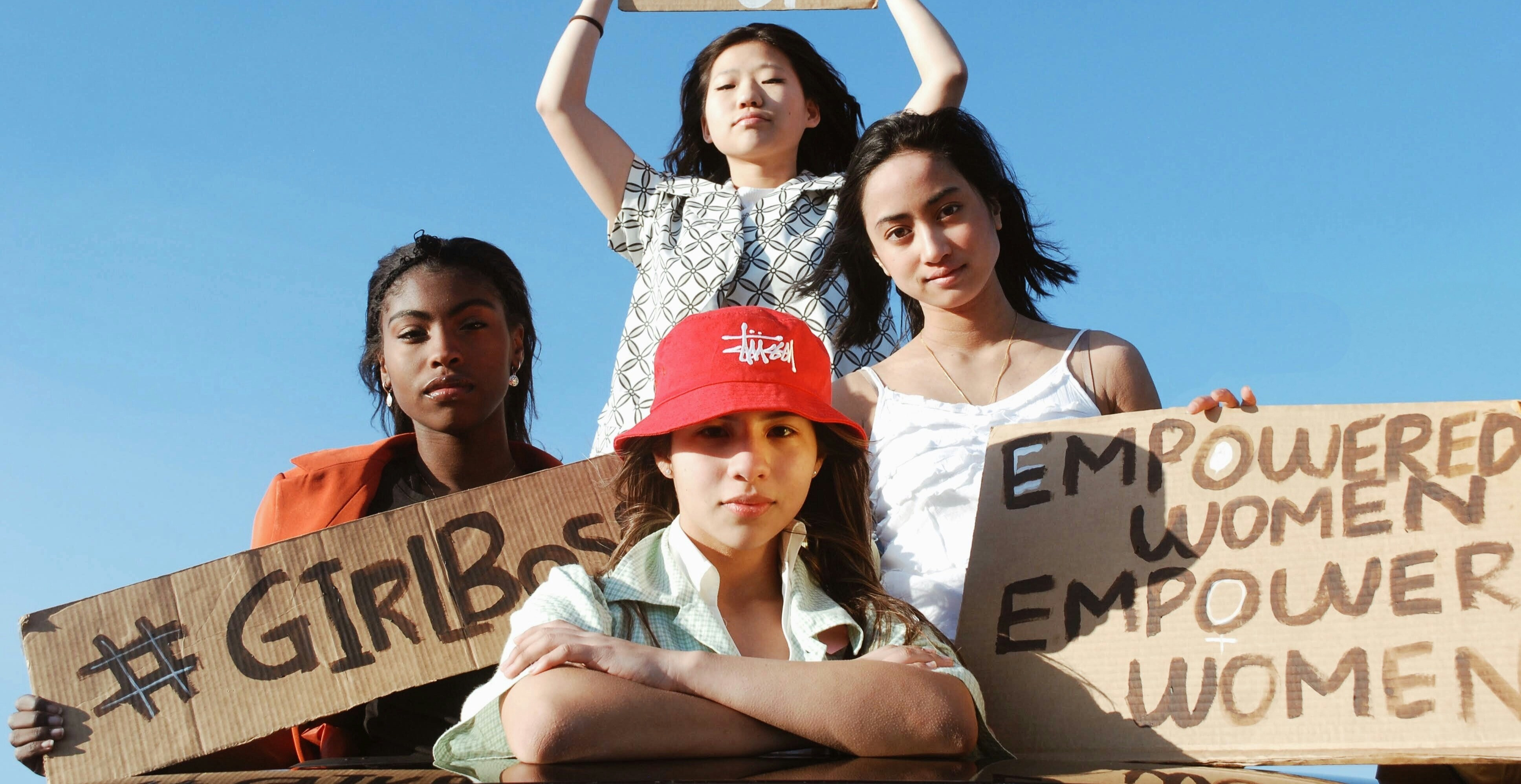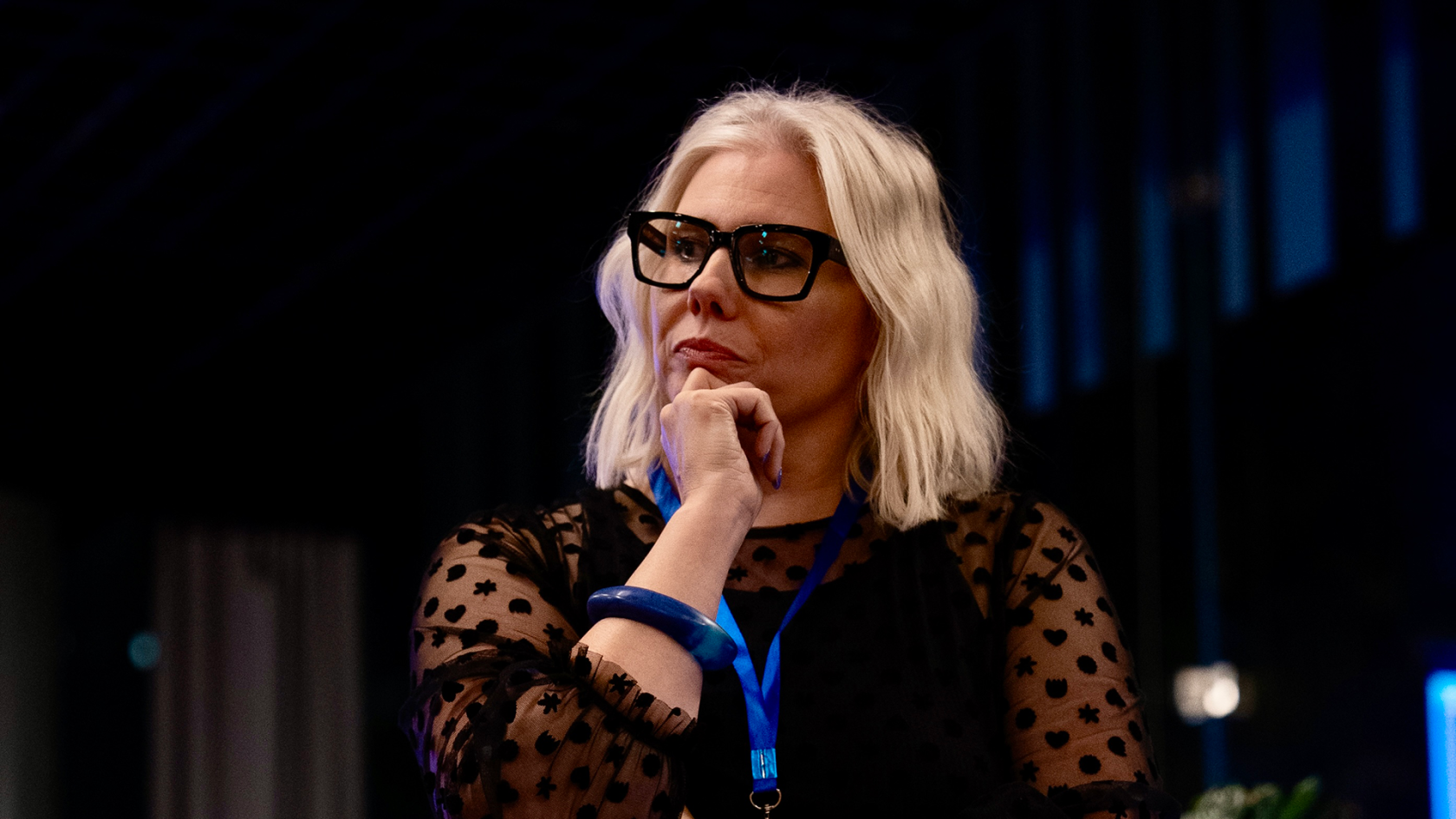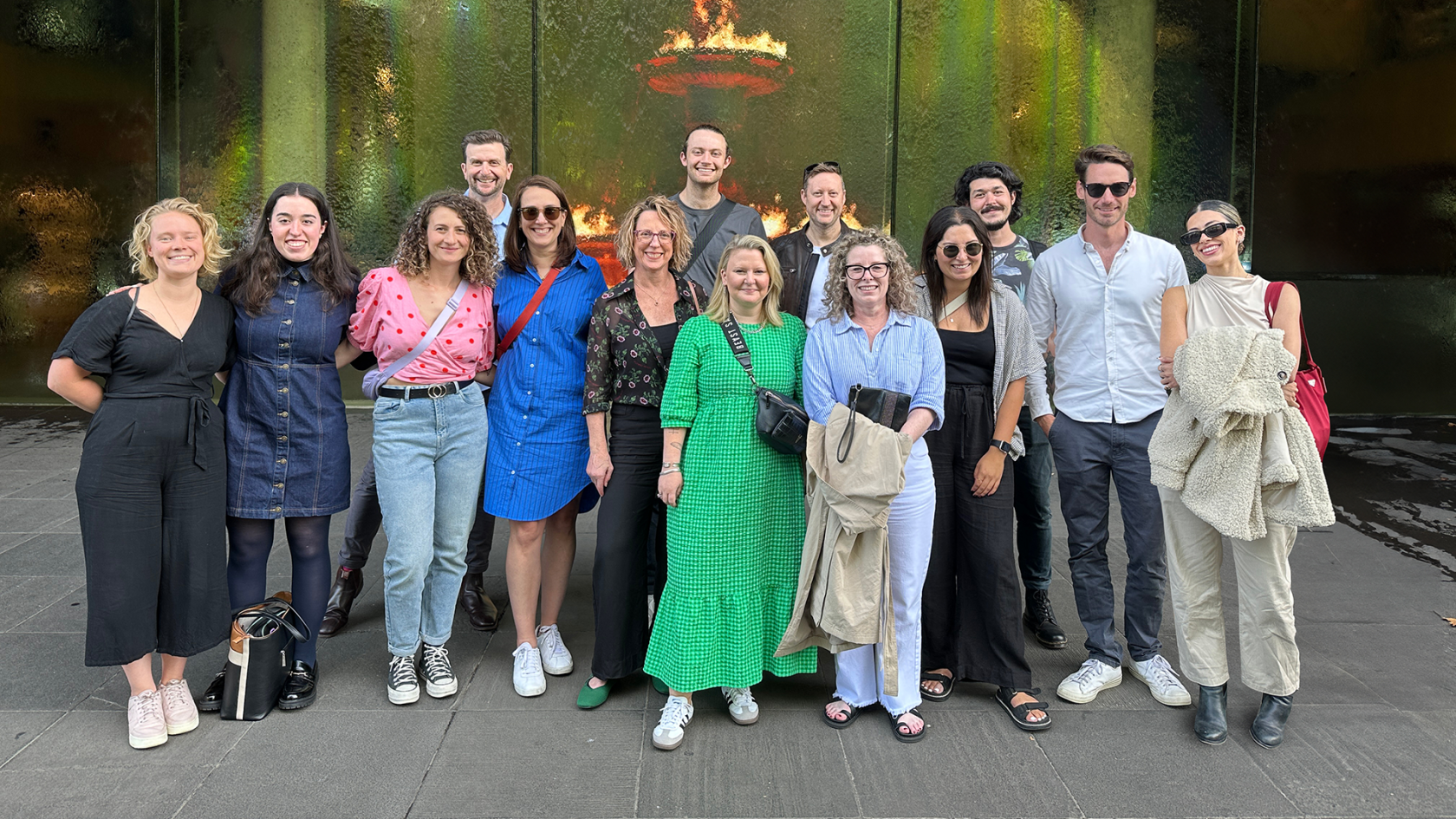

Amber founded Edison in 2011 with nothing but a Macbook Pro and a “bite big” attitude.
As one of 5 daughters in her family, she has been surrounded by strong independent women from day dot, and with an agency predominantly made up of female talent, she says; “each day I am inspired by the strength, humility, empathy and drive of incredible women.”
However, after twenty years in an industry where the status quo is male senior leaders, for example in creative agencies, fewer than 10% of creative directors are women (2023 recruiters Creative Natives), Amber and the Edison agency collectively understands that not all women have the skills, confidence or capability for self-advocating and being seen.
As a proud feminist she is passionate about using her expertise and voice to champion for greater gender equity.
You could easily say Amber is the ultimate original Girlboss. But, being a Girlboss is not always straightforward...

Let’s take a step back to move forward. Before Girlboss there was Career Woman. The distinction between a ‘girlboss’ and a "career woman" lies in the cultural context and connotations associated with each term. Originally, "career woman" was used to describe a woman who pursued professional success, but it carried negative implications of selfishness and immorality. In contrast, ‘girlboss’ emerged as a term of approval, celebrating female entrepreneurship, leadership, and ambition in traditionally male-dominated fields.
The term "Girlboss" emerged in the early 2010s, coined by Sophia Amoruso - her memoir "#GirlBoss," detailed her journey from a struggling vintage clothing seller on eBay to the CEO of a multimillion-dollar fashion empire. It embodied a narrative of individual success and resilience in traditionally male-dominated spaces. This early phase of the movement emphasised breaking gender norms, embracing confidence, and carving out a path to success on your own terms.
At its core, the concept of the Girlboss celebrates female ambition, resilience, and leadership. It challenges traditional notions of success and authority, asserting that women can thrive in industries typically dominated by men. Moreover, it emphasises the importance of self-belief and determination in achieving your goals, irrespective of societal barriers.
However, the evolution of the term ‘Girlboss’ from a symbol of empowerment into a form of entrenched misogyny through over-analysis, over thinking perhaps and certainly scrutiny reflects the complexities of language, societal dynamics, and the intersection of feminism with broader cultural narratives.
As the movement gained traction, commentary emerged regarding its limitations and potential for reinforcing gender stereotypes. By 2019, the term ‘Girlboss’ became associated with a narrow and individualistic approach to feminism, focusing more on personal achievement than systemic change. Including views that the glorification of certain traits, such as assertiveness and ambition, led to concerns about the exclusion of women who did not fit into this mold.
Over time, the tide truely turned against the Girlboss movement, with growing disillusionment and backlash. Critics argued that it oversimplifies the complexities of gender dynamics in the workplace. That it failed to address the structural inequalities and systemic barriers that perpetuate gender inequity. Moreover, the term itself became loaded with negative connotations, perceived as a shallow form of feminism that prioritised individual success over collective progress.

As a result, the rise and fall of the Girlboss movement exemplify the complexities and tensions within contemporary feminism. While it initially represented a form of empowerment and agency for some women, it ultimately became a catalyst of broader debates surrounding feminism's agendas, methods and goals. It evolved into a critique of individual women's behaviour, bordering on old-fashioned misogyny.
The expectation that successful women must embody idealised traits of kindness, nurturing, and selflessness mirrors antiquated notions of femininity and places an undue burden on women to prove their worthiness. This mindset continues to push the harmful stereotype that women's success is only based on meeting certain moral standards, a notion not applied to men in similar positions.
The fate of the ‘girlboss’ phenomenon symbolises a broader clash within feminism between two distinct approaches: those advocating for systemic change to address societal inequalities and those focusing on empowering women to navigate existing structures.
On one hand, we have those who prioritise challenging and transforming the societal structures that perpetuate gender inequality. This approach seeks to dismantle systems of oppression, advocate for policy changes, and address root causes of discrimination. Advocates argue that that true progress towards gender equality requires challenging patriarchal norms and creating a more just and equitable society for all individuals.
On the other hand, there are those who advocate for empowering women to navigate existing societal structures, even in their flawed state. This approach emphasises individual confidence, self-empowerment, and the pursuit of success within the constraints of existing systems. Advocates argue that while systemic change is necessary, women should also be empowered to thrive and succeed in their personal and professional lives despite societal barriers.
The clash between these two strands of feminist thinking reflects broader debates about the most effective strategies for achieving gender equality. Some argue that focusing solely on systemic change may overlook the immediate needs and aspirations of individual women, while others believe that empowering women within existing structures may perpetuate and reinforce those structures.

With a predominantly female agency and the embodiment of Amber's personal mantra ‘bite big and chew like hell’, we hope to empower other women to succeed and find their voice. We are committed to using our expertise and voice to champion gender equity — providing funding, counsel and support for initiatives that improve the lives of all those who identify as women.
We can all learn from the Girlboss movement, the Edison Agency strongly believes that ultimately, the resolution lies in recognising the complementary nature of both these approaches. Both challenging societal norms and empowering women to navigate existing structures are essential components of a comprehensive feminist agenda.
By simultaneously working towards systemic change and supporting individual empowerment, feminism can address both the immediate needs of women and the underlying causes of gender inequality and work towards a future where all women have the opportunity to thrive, irrespective of titles or labels.
The word or descriptions is irrelevant. The sentiment is critical. Through our studio model, both internally and externally, we practice championing women's voices, modelling all types of positive leadership, advocating for, and encouraging risk taking in business, being generous with business lessons, tools and insights and elevating BQ (Business IQ).
Together, we imagine change.
Check out the Bite Big Podcast - Boss Women Leading Big Brands